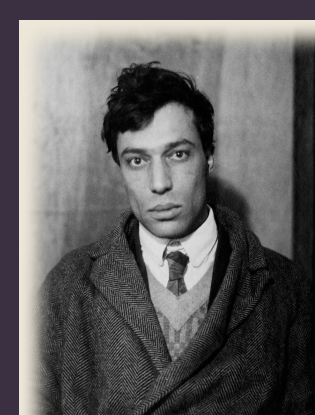
Boris Pasternak, by his own admission,
“loved music more than anything in the world, and I loved Scriabin more than anyone else in that world…” (Safe Conduct: An Autobiography and Other Writings).
Boris Leonidovich became a student of his favorite composer, but after six years of study, he left, discovering in himself an incurable flaw — the lack of perfect pitch. The three stanzas, performed by Veniamin Smekhov to piano accompaniment, are the finale of the poem “Split”: personal turmoil against the backdrop of the first unbearable post-revolutionary years and the Civil War. “The air reeks of death's chill” — this is a statement of fact. Here’s how the music is written:
The chimes at the beginning and the end (a total of four descending rows, like those of the Spasskaya Tower) are not just chimes but also year-by-year diaries in batches: twelve chords fly into the fireplace, then another twelve, and another. Then a small fire flares up. When the verses are read, four identically structured chords, called Tristan chords in musical theory, replace each other (Wagner built the opera Tristan und Isolde from one such chord). The Tristan chord conveys the feeling of Sehnsucht — yearning, longing for the unknown. There are four such chords here — like the four walls within which the hero flounders until, finally, he finds an exit — a window.
After the verses, Tchaikovsky's famous romance “I Opened the Window” is semi-recognizably quoted. The opening of the window there is bliss, fresh air, the breath of life. In Pasternak’s last lines, one hears not only the “death’s chill” but also the guilty pleasure of the newly opened prospect of following Werther. At the end, another batch of diaries flies into the fireplace — as if it were the very one we just read.
...The quivering piano licks froth from the lips.
This frenzy will tear you, bring you to knee.
You’ll say: "My dear!" —"No" I’ll cry out, "No, please!
With music?!" — But can we be closer than this,
Than in half-light, tossing chords like a diary,
Into the fireplace, year by year, in batches?
O nod, understanding divine, and you’ll see,
You’ll marvel! — you’re free. No chain now attaches.
I don’t hold you back. Go, do good if you will.
Go to others. Werther’s already been penned,
And nowadays the air reeks of death’s chill:
To open a window — like veins to rend.
1919